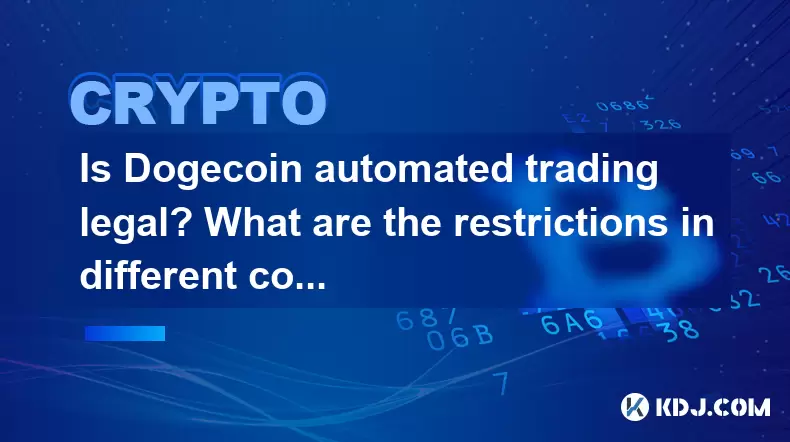-
 Bitcoin
Bitcoin $118800
-0.43% -
 Ethereum
Ethereum $4231
-0.53% -
 XRP
XRP $3.140
-1.41% -
 Tether USDt
Tether USDt $1.000
-0.02% -
 BNB
BNB $808.5
0.57% -
 Solana
Solana $175.1
-4.38% -
 USDC
USDC $0.9999
0.01% -
 Dogecoin
Dogecoin $0.2229
-4.71% -
 TRON
TRON $0.3458
2.18% -
 Cardano
Cardano $0.7744
-3.43% -
 Hyperliquid
Hyperliquid $43.19
-4.44% -
 Chainlink
Chainlink $21.19
-4.12% -
 Stellar
Stellar $0.4313
-2.84% -
 Sui
Sui $3.659
-5.59% -
 Bitcoin Cash
Bitcoin Cash $580.1
1.65% -
 Hedera
Hedera $0.2472
-4.61% -
 Ethena USDe
Ethena USDe $1.001
-0.03% -
 Avalanche
Avalanche $22.88
-3.98% -
 Litecoin
Litecoin $120.5
-2.63% -
 Toncoin
Toncoin $3.375
0.74% -
 UNUS SED LEO
UNUS SED LEO $8.984
-1.31% -
 Shiba Inu
Shiba Inu $0.00001296
-4.28% -
 Uniswap
Uniswap $11.06
1.08% -
 Polkadot
Polkadot $3.869
-4.65% -
 Cronos
Cronos $0.1664
1.09% -
 Dai
Dai $1.000
0.00% -
 Ethena
Ethena $0.7979
0.07% -
 Bitget Token
Bitget Token $4.395
-1.14% -
 Monero
Monero $268.2
-0.19% -
 Pepe
Pepe $0.00001125
-6.91%
Is Dogecoin automated trading legal? What are the restrictions in different countries’ policies?
Dogecoin automated trading legality varies globally; U.S. overseen by SEC/CFTC, EU by MiFID II, UK by FCA, Japan by FSA, China bans it, South Korea and Australia have strict rules.
May 21, 2025 at 01:28 am

Is Dogecoin automated trading legal? What are the restrictions in different countries’ policies?
The legality of Dogecoin automated trading varies significantly across different countries, influenced by their respective regulatory frameworks and policies. Automated trading, also known as algorithmic trading, involves using computer programs to execute trades based on predefined criteria. While Dogecoin, a popular cryptocurrency, is often traded on various platforms, the legality of automated trading of Dogecoin hinges on the broader regulations surrounding cryptocurrencies and automated trading systems.
United States
In the United States, the legality of Dogecoin automated trading is subject to the oversight of multiple regulatory bodies, including the Securities and Exchange Commission (SEC) and the Commodity Futures Trading Commission (CFTC). The SEC primarily regulates securities, while the CFTC oversees commodities, and cryptocurrencies like Dogecoin can fall under either category depending on their classification.
- SEC Regulations: If Dogecoin is classified as a security, automated trading platforms must comply with SEC regulations, which include registration requirements and adherence to anti-fraud provisions. The SEC has been actively scrutinizing cryptocurrency trading platforms, and automated trading systems must ensure they do not engage in manipulative practices.
- CFTC Regulations: If Dogecoin is considered a commodity, the CFTC's regulations come into play. The CFTC requires that automated trading systems be registered and comply with rules designed to prevent market manipulation and ensure fair trading practices.
Additionally, individual states in the U.S. may have their own regulations regarding cryptocurrency trading, which can further complicate the legal landscape for automated trading of Dogecoin.
European Union
The European Union has a more harmonized approach to regulating cryptocurrencies and automated trading through the Markets in Financial Instruments Directive (MiFID II). MiFID II sets out rules for investment firms and trading venues, including those dealing with cryptocurrencies.
- MiFID II Compliance: Automated trading systems must be registered and comply with MiFID II's requirements, which include transparency, reporting, and risk management. The European Securities and Markets Authority (ESMA) oversees the implementation of these regulations across EU member states.
- Country-Specific Regulations: While MiFID II provides a framework, individual EU countries may have additional regulations. For instance, Germany has specific rules for cryptocurrency trading, and automated trading systems must ensure compliance with these local laws.
United Kingdom
Post-Brexit, the United Kingdom has its own regulatory framework for cryptocurrencies and automated trading, primarily overseen by the Financial Conduct Authority (FCA).
- FCA Regulations: The FCA requires that automated trading systems be authorized and comply with rules designed to protect consumers and ensure market integrity. Cryptocurrency trading platforms must register with the FCA and adhere to anti-money laundering (AML) and know-your-customer (KYC) regulations.
- Specific Restrictions: The FCA has imposed restrictions on the marketing and sale of certain cryptocurrencies to retail consumers, which can impact the use of automated trading systems for Dogecoin.
Japan
Japan has been at the forefront of regulating cryptocurrencies, with the Financial Services Agency (FSA) playing a central role.
- FSA Regulations: Automated trading systems must be registered with the FSA and comply with Japan's stringent AML and KYC regulations. The FSA also requires that trading platforms implement robust security measures to protect against hacks and fraud.
- Cryptocurrency Exchange Regulations: Japan has specific regulations for cryptocurrency exchanges, which must be licensed and adhere to strict operational standards. Automated trading systems operating on these exchanges must comply with these regulations.
China
China has taken a more restrictive approach to cryptocurrencies, with significant implications for automated trading.
- Ban on Cryptocurrency Trading: China has banned cryptocurrency trading on domestic exchanges, which severely limits the legality of automated trading of Dogecoin within the country. However, Chinese investors can still access international exchanges, where automated trading may be legal depending on the jurisdiction of the exchange.
- Regulatory Crackdowns: The Chinese government has conducted regulatory crackdowns on cryptocurrency-related activities, which can impact the use of automated trading systems by Chinese investors.
South Korea
South Korea has a vibrant cryptocurrency market, but it also has strict regulations in place.
- Financial Services Commission (FSC) Regulations: The FSC oversees cryptocurrency trading and requires that automated trading systems be registered and comply with AML and KYC regulations. South Korea has implemented real-name trading systems, which add an additional layer of regulation for automated trading.
- Restrictions on Anonymous Trading: South Korea has banned anonymous cryptocurrency trading, which impacts the operation of automated trading systems that rely on anonymity.
Australia
Australia has a relatively permissive approach to cryptocurrencies, but there are still regulations that automated trading systems must follow.
- Australian Securities and Investments Commission (ASIC) Regulations: ASIC oversees cryptocurrency trading and requires that automated trading systems be registered and comply with financial services laws. This includes adherence to AML and KYC regulations.
- Consumer Protection: ASIC places a strong emphasis on consumer protection, and automated trading systems must ensure they do not engage in practices that could harm consumers.
Frequently Asked Questions
Q: Can I use automated trading systems for Dogecoin if I am a resident of a country where cryptocurrency trading is banned?
A: If cryptocurrency trading is banned in your country, using automated trading systems for Dogecoin within that jurisdiction would likely be illegal. However, you may be able to access international exchanges where automated trading is legal, but you must comply with the regulations of the country where the exchange is based.
Q: Are there any global standards for the regulation of automated trading of cryptocurrencies like Dogecoin?
A: There are no global standards for the regulation of automated trading of cryptocurrencies. Each country has its own regulatory framework, and international organizations like the Financial Action Task Force (FATF) provide guidelines that countries may choose to adopt.
Q: How can I ensure that my automated trading system for Dogecoin complies with local regulations?
A: To ensure compliance, you should first identify the regulatory bodies overseeing cryptocurrency trading in your country. Register your automated trading system with the appropriate authorities, and ensure that you adhere to all relevant regulations, including AML and KYC requirements. Consulting with a legal expert specializing in cryptocurrency regulations can also be beneficial.
Q: Are there any specific risks associated with using automated trading systems for Dogecoin?
A: Yes, there are several risks, including technical failures, market volatility, and regulatory changes. Automated trading systems can execute trades at high speeds, which can amplify losses if the market moves against your positions. Additionally, regulatory changes can impact the legality and operation of your trading system, so staying informed about regulatory developments is crucial.
Disclaimer:info@kdj.com
The information provided is not trading advice. kdj.com does not assume any responsibility for any investments made based on the information provided in this article. Cryptocurrencies are highly volatile and it is highly recommended that you invest with caution after thorough research!
If you believe that the content used on this website infringes your copyright, please contact us immediately (info@kdj.com) and we will delete it promptly.
- Dogecoin's Wild Ride: Big Holders, Price Push, and What's Next for the Meme Coin
- 2025-08-12 08:30:12
- Bitcoin to $133,000? Here's What the Experts Are Saying
- 2025-08-12 08:30:12
- Dogecoin, Meme Coins, and Whale Buys: What's the Hype?
- 2025-08-12 06:50:12
- Bitcoin, Ethereum, and the Pump-and-Dump Merry-Go-Round: A New Yorker's Take
- 2025-08-12 07:10:12
- MAGACOIN Mania: Why Holders Are Staking Their Claim in This Bull Season
- 2025-08-12 06:30:13
- Heritage Distilling's Bold Bet: A $360M IP Treasury Powered by Story Protocol
- 2025-08-12 06:30:13
Related knowledge

How to purchase Aragon (ANT)?
Aug 09,2025 at 11:56pm
Understanding Aragon (ANT) and Its PurposeAragon (ANT) is a decentralized governance token that powers the Aragon Network, a platform built on the Eth...

Where to trade Band Protocol (BAND)?
Aug 10,2025 at 11:36pm
Understanding the Role of Private Keys in Cryptocurrency WalletsIn the world of cryptocurrency, a private key is one of the most critical components o...

What is the most secure way to buy Ocean Protocol (OCEAN)?
Aug 10,2025 at 01:01pm
Understanding Ocean Protocol (OCEAN) and Its EcosystemOcean Protocol (OCEAN) is a decentralized data exchange platform built on blockchain technology,...

Where can I buy UMA (UMA)?
Aug 07,2025 at 06:42pm
Understanding UMA and Its Role in Decentralized FinanceUMA (Universal Market Access) is an Ethereum-based decentralized finance (DeFi) protocol design...

How to buy Storj (STORJ) tokens?
Aug 09,2025 at 07:28am
Understanding Storj (STORJ) and Its Role in Decentralized StorageStorj is a decentralized cloud storage platform that leverages blockchain technology ...

Where to find the best price for Audius (AUDIO)?
Aug 11,2025 at 04:01pm
Understanding the Basics of Ethereum StakingEthereum staking refers to the process of locking up ETH tokens to support the security and operations of ...

How to purchase Aragon (ANT)?
Aug 09,2025 at 11:56pm
Understanding Aragon (ANT) and Its PurposeAragon (ANT) is a decentralized governance token that powers the Aragon Network, a platform built on the Eth...

Where to trade Band Protocol (BAND)?
Aug 10,2025 at 11:36pm
Understanding the Role of Private Keys in Cryptocurrency WalletsIn the world of cryptocurrency, a private key is one of the most critical components o...

What is the most secure way to buy Ocean Protocol (OCEAN)?
Aug 10,2025 at 01:01pm
Understanding Ocean Protocol (OCEAN) and Its EcosystemOcean Protocol (OCEAN) is a decentralized data exchange platform built on blockchain technology,...

Where can I buy UMA (UMA)?
Aug 07,2025 at 06:42pm
Understanding UMA and Its Role in Decentralized FinanceUMA (Universal Market Access) is an Ethereum-based decentralized finance (DeFi) protocol design...

How to buy Storj (STORJ) tokens?
Aug 09,2025 at 07:28am
Understanding Storj (STORJ) and Its Role in Decentralized StorageStorj is a decentralized cloud storage platform that leverages blockchain technology ...

Where to find the best price for Audius (AUDIO)?
Aug 11,2025 at 04:01pm
Understanding the Basics of Ethereum StakingEthereum staking refers to the process of locking up ETH tokens to support the security and operations of ...
See all articles

























































































